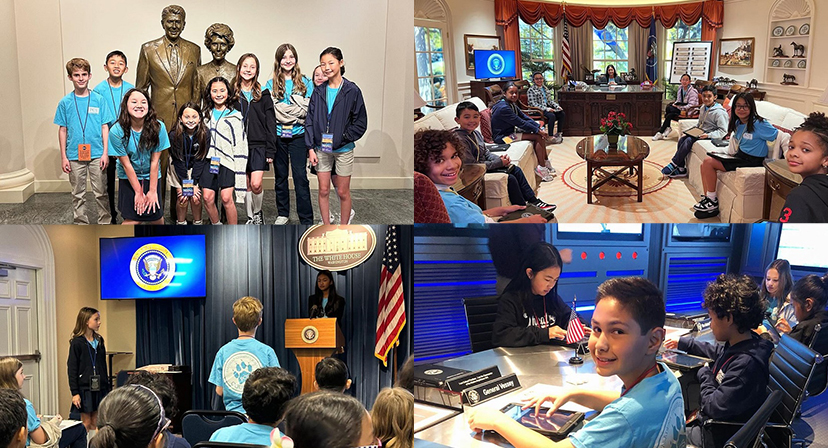Creating Structure and Routine For Kids During COVID-19

For most of us, life feels anything but normal right now in the midst of the COVID-19 pandemic. With schools closed and adults working from home, our daily lives have been turned upside down. Despite this new reality, you can create a positive and productive “new normal” for your family by having consistent routines. Kids thrive on routines — especially during a time of crisis when many things are unknown. Developing a routine for kids during COVID-19 can provide much needed structure and some predictability at a time when it’s hard to predict much.
Structure promotes reassurance and a sense of safety. Routines can also promote positive physical and mental health. Structure and routine help to maintain balance and normalcy. The more a child can anticipate what is happening, the better they are prepared to face daily challenges and expectations.
Here are some suggestions in establishing a routine for your child:
• Set a schedule. Keep it as close to your kid’s normal school schedule as possible. Don’t get carried away and over-commit to an extensive schedule. Start small and slowly; build into it as you see it working for your child and family.
• Set aside time to review the schedule and expectations with your child. This will ensure that they understand what is expected of them and you have an opportunity to get buy in from them.
• Post your daily schedule. This way, everyone will know what to expect and you can reference it instead of answering constant questions about when something is going to happen.
• If you fall out of your schedule, don’t worry about it. Just reset and try again. Make adjustments if you need to.
• Develop a consistent morning and bedtime routine. The goal is to stay as close to their daily school schedule as possible to allow for a smooth transition. This will also allow their physiological system to maintain a healthy balance.
• Have kids “win” their mornings. Encourage your child to change out of pajamas and participate in regular grooming and hygiene activities such as brushing their teeth, washing their face, taking showers, etc.
• Schedule time for meals and snacks. Again, keep times similar to how they would be during a typical school day.
• Set aside a quiet workspace for your child to complete schoolwork.
• Conquer tougher tasks earlier. Schedule harder tasks, such as classwork, to be completed earlier in the day when your child is more refreshed and rested. Save easier tasks for later in the day.
• Take breaks. Allow for natural breaks throughout the day. This time can be spent relaxing, listening to music, reading for fun, engaging in a hobby or exercising.
• Stay flexible. Be flexible and be attentive to your child’s mood. When they are overly stressed or anxious, you might schedule in additional fun or rest breaks.
• Get outside. Set aside time for outdoor activities, following social distancing guidelines. This is a great opportunity to go for a short family hike, bike ride or walk around the neighborhood. The goal is to remain active and physical while upholding good social distancing practices.
• Allow screen time as needed. It is inevitable that your child will want to connect with friends online or spend some time in front of a screen. Screen time is a great way to reward your child for completing their tasks such as chores and schoolwork.
• Create boundaries around your time. Consider your needs as a parent, especially if you are working from home. Set up some expectations with your kids about when you will be able to help and when you will not be. Build into the schedule some activities you know they will be able to do on their own. Be patient with them and yourself while you are getting into a groove. Your kids might struggle to be independent at first, but they will gradually get used to it.
• Remember your own self-care. Consider your own needs and build them into your schedule. Shower. Prioritize sleep. Plan time for each parent to have a few moments to themselves Taking care of yourself will not only help you stay healthy, but it will keep you centered so you can take care of your kids.
The first few days of any new routine will likely be rough, but try to stick with it. Keep in mind that having a predictable schedule does not mean you have to live rigidly. In fact, this can be a good opportunity to loosen up some time limitations that have been stressing you out.
As you navigate your new routine, try to foster patience, practice empathy, and keep a sense of humor with your kids. Doing these things can be difficult in times of crisis, but it is more important now than ever before.
 About the Author, Mona Tahsini, MFT:
About the Author, Mona Tahsini, MFT:
Mona joined Teen Therapy Center of Silicon Valley (formerly Los Gatos Teen Therapy) as a Therapist in 2011. She has been working with teens, families and community support services since 1999 to provide individual, family and group therapy, clinical assessments, strength-based and community-based mental health services, crisis intervention and parent coaching. As an in-office therapist, she saw that teens and families often had difficulty implementing interventions and strategies in day-to-day life when faced with challenges. In 2014, Mona started Teen Therapy Center’s In-Home Coaching Program as opportunity for teens and families to get support and coaching in real time.
Futures Academy, 35 N. Lake Ave #160, Pasadena, (866) 598-0406 or visit www.futures.edu/campus/pasadena.



















